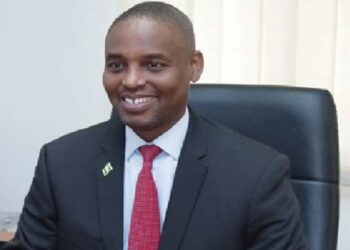UK immigration tribunal rules Pastor Tobi Adegboyega’s deportation must proceed, dismissing his claims of community work and personal contributions.
New details have emerged on the UK immigration upper tribunal’s decision to approve the deportation of Pastor Tobi Adegboyega, founder of the controversial Salvation Proclaimers Anointed Church (SPAC Nation).

The 44-year-old Nigerian pastor, who initially entered the UK on a visitor’s visa in 2005, had overstayed his visa and sought to remain in the country on human rights grounds, citing his marriage to a British citizen.
Also read: Donald Trump Reveals Plan to Launch the “Largest Deportation Operation” If Elected as President
Despite these claims, the Home Office rejected his request to stay, prompting Adegboyega to appeal the decision.
His first appeal to the First-tier Tribunal was unsuccessful. He subsequently appealed to the Upper Tribunal on 15 August 2022, but judges rejected his case.
In his defence, Adegboyega, represented by lawyer Dele Olawanle, argued that his church’s intervention programmes had made significant contributions to UK society.
These initiatives reportedly helped rescue young people from gang violence and crime, with Adegboyega claiming recognition from influential figures such as former Prime Minister Boris Johnson and senior Metropolitan Police officials.
The pastor further argued that his deportation would damage his efforts to continue helping vulnerable youths in London.
He also highlighted the establishment of a food bank which had distributed over 136,000 meals to children in need and the creation of safe houses to protect young people from gang conflicts.
However, the Upper Tribunal judges, Bruce and Rastogi, dismissed his claims, stating that Adegboyega’s contributions were “grossly inflated” and unsupported by evidence.
The court noted the lack of corroboration from key institutions such as the Metropolitan Police, Downing Street, and the Home Office, all of which he claimed had endorsed his work.
The ruling also emphasised Adegboyega’s unlawful stay in the UK and his failure to provide solid evidence of his influence.
The tribunal specifically pointed out the implausibility of his work schedule, which involved overseeing multiple church events and supporting numerous community projects, suggesting that such tasks were likely carried out by others in his organisation.
Adegboyega had also argued that his marriage to Mary Olubukola Alade, a British citizen earning £100,000 annually, was a significant factor in his appeal.
He explained that he was fully supported by his wife, as he received no salary from the church. Despite this, the tribunal found his marriage insufficient to overcome his immigration violations.
The pastor, known for his extravagant lifestyle, has long been at the centre of controversy. Allegations of financial misconduct and a lavish lifestyle have dogged his reputation, with accusations that funds raised for community projects were misused to support his opulent living.
These claims were brought to light in a BBC documentary, where victims alleged they were deceived into believing their financial contributions would benefit disadvantaged youths, only to discover the money allegedly funded Adegboyega’s luxury lifestyle.
Despite the controversies, the pastor was never convicted of any crimes. He remains a prominent figure, regularly seen alongside celebrities and known for flaunting a luxurious lifestyle.
In November 2022, Adegboyega hosted a lavish birthday party attended by Nigerian artistes, including Davido and Kcee, where he expressed confidence in his ability to navigate legal challenges.
In response to the recent deportation ruling, Adegboyega took to Instagram, dismissing the allegations and expressing confidence that no amount of persecution would undermine his position.
He claimed that since news of his deportation surfaced, his companies had raised over £1 million in a single day, calling it a “blessing” he did not foresee.
Despite this, Adegboyega still has the option to appeal the Upper Tribunal’s decision to the Court of Appeal. Should he choose to pursue this route, the Home Office has stated he must file the appeal within 28 days of receiving permission.









